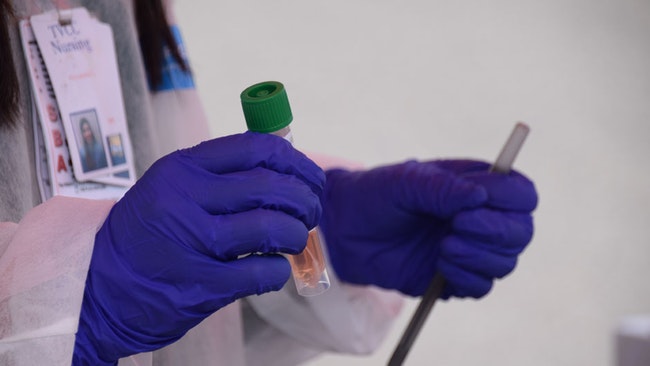
A new effort by the Eastern Oregon Center for Independent Living, in conjunction with the state, aims to raise awareness regarding HIV in rural communities. (The Enterprise/FILE).
ONTARIO – The Eastern Oregon Center for Independent Living recently joined forces with the state to encourage people who live in rural areas of eastern Oregon to get tested for HIV, the virus that triggers AIDS.
AIDs, or human immunodeficiency virus, destroys specific cells in the immune system which makes it easier for infections to enter and spread in the body.
About 1.1 million people in the U.S. live with HIV and about 38,000 new infections occur every year.
The new campaign will run through July and focuses on Pendleton, Hermiston, La Grande, Ontario and surrounding areas. The effort will include newspaper, radio, digital and social media ads as well as billboards.
“It’s a campaign we’ve been advocating since 2015,” said Kirt Toombs, chief executive officer of the center.
The drive is in conjunction with the Oregon Health Authority and its END HIV Oregon program that began in 2016.
Toombs said there is a rise in HIV positive cases in rural communities in eastern Oregon.
“Not just HIV but STIs (sexually transmitted infections) also,” he said.
Malheur County reported five HIV-positive cases last year, said Sarah Poe, Malheur County Health Department director.
“We had five cases in the five years previous to that. We’ve seen a huge increase so we’ve increased testing,” said Poe.
Poe said 2020 data showed 37 people living with HIV in the county. Those are just the identified cases so the total is likely much higher, she said.
Toombs said the goal is to raise awareness, provide information about resources and address stigma.
“No one should fear getting tested for HIV or an STI,” said Toombs.
He believes about six out of 10 Oregonians have not been tested for HIV.
“We know we have about 8,000 people living with HIV in Oregon, 222 in 13 rural communities have tested positive,” he said.
He said early detection is critical.
“We want people to get tested and get them into case management early so they can have long, healthy lives,” he said.
Poe said testing for HIV and sexually transmitted infection is “really important.”
“You should be tested for HIV at least once. Everyone should know their status,” said Poe.
Early in the AID epidemic an HIV-positive test was considered by many as a death sentence. Rapid advances in medical technology now mean someone who is HIV positive can live longer with fewer complications than was the case three decades ago.
For example, a daily dose of medication called pre-exposure prophylaxis reduces the risk of acquiring HIV from sex by 99%. Most private health plans and all Medicaid-expansion programs cover that service for free. There is also access to free HIV home test kits through TakeMeHome. org. The bottom line, said Poe, is the infection is treatable.
“There are ways through medication people can reduce their levels down to the point it is not even detectable. It’s pretty incredible we have these medications,” said Poe.
Poe said interested individuals can get a free, confidential HIV test at the health department.
News tip? Contact reporter Pat Caldwell at pat@malheurenterprise. com.
EXCELLENCE IN JOURNALISM – Available for $5 a month. Subscribe to the digital service of the Enterprise and get the very best in local journalism. We report with care, attention to accuracy, and an unwavering devotion to fairness. Get the kind of news you’ve been looking for – day in and day out from the Enterprise.




